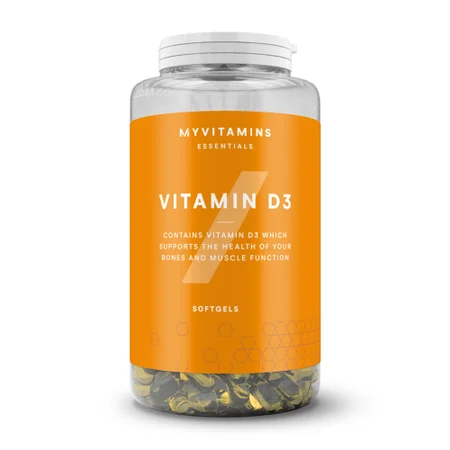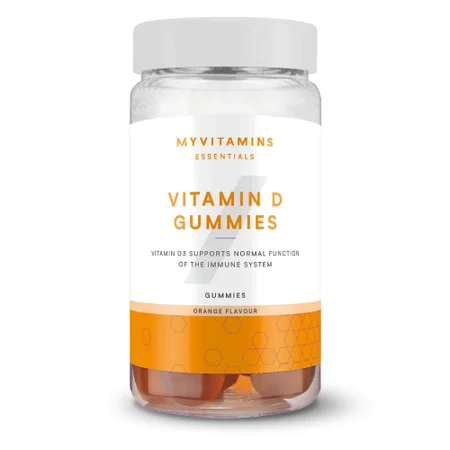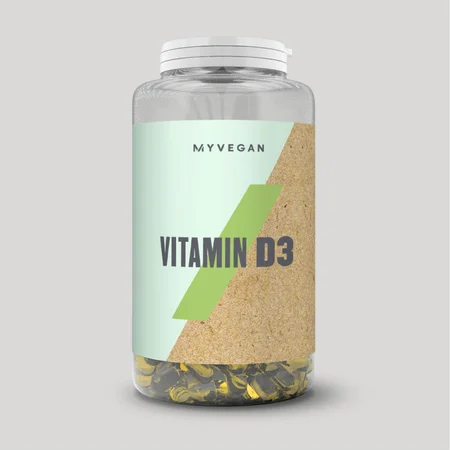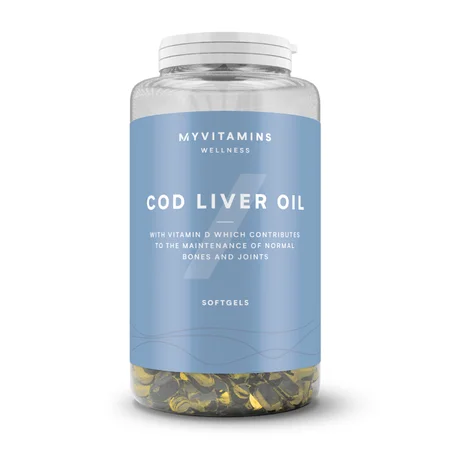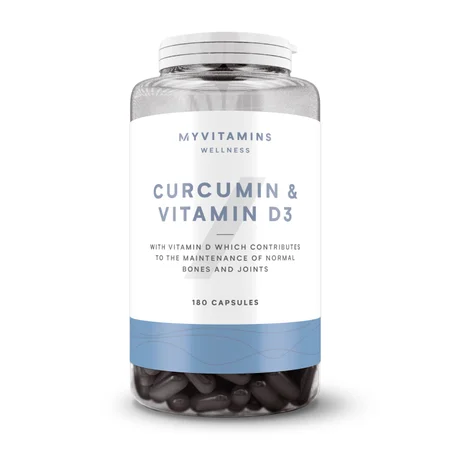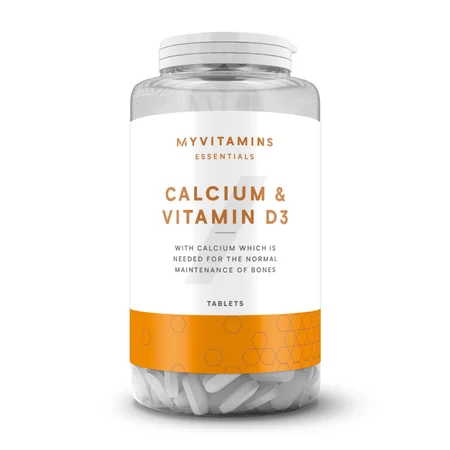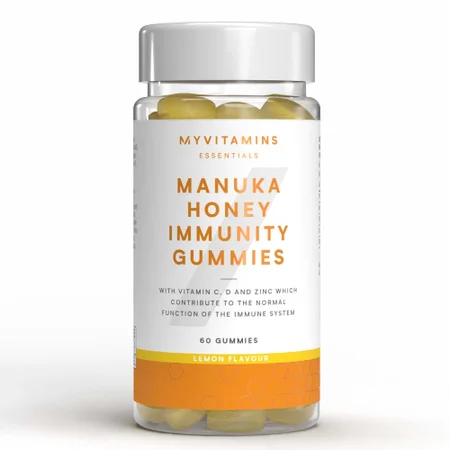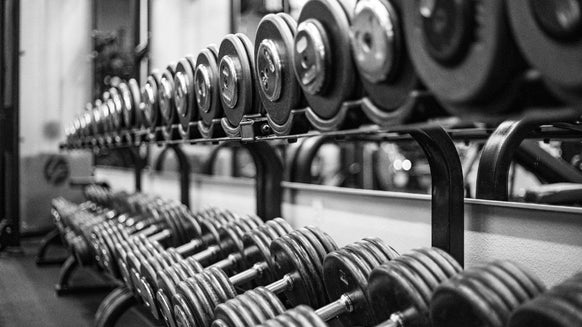
You’ve probably heard of the “sunshine vitamin,” but what exactly is it and why is it so important? We’re talking about vitamin D, a crucial nutrient for your overall health and performance. Unlike most vitamins, our bodies can produce it naturally when our skin is exposed to sunlight. But during the colder, darker months, it’s not always easy to get enough of this essential vitamin.
So, why should you care about getting enough of it? It's key for supporting everything from your immune system to your muscle function. In this article, we’ll dive into the top benefits of vitamin D, where to get it from both food and supplements, and how to make sure you’re hitting your daily needs.
Jump to:
- What is vitamin D?
- The key benefits of vitamin D
- Where do we get vitamin D?
- How much vitamin D do you need?
- Vitamin D supplements
What is Vitamin D?
Vitamin D is an essential nutrient that helps regulate various processes within the body. We can get from both sun exposure and certain foods.
There are two main forms of vitamin D important to humans: D2 (ergocalciferol) and D3 (cholecalciferol). While both forms can increase vitamin D levels in the blood, vitamin D3 is generally considered to be more effective and potent.
It's best known for helping to regulate calcium and phosphate, which are essential for strong bones and teeth. Yet, its benefits extend far beyond that, touching everything from our immune system to our muscles.
The Key Benefits of Vitamin D
Vitamin D is one of the most important components in our diet, yet recent research has found that as many as one in five people in the UK are found to be deficient in it.1 It has a diverse range of functions, benefitting both mental and physical health.
Supporting Your Immune System
Vitamin D plays a critical role in supporting the normal function of the immune system.1,2 A robust immune system is essential for helping the body protect itself from external challenges, keeping us feeling our best, and allowing us to stay consistent with our training.
Maintaining Strong Bones & Muscles
Vitamin D contributes to the maintenance of normal bones, teeth and muscle function.2,3 It helps the body absorb calcium and phosphorus, which are the main building blocks of bones, making it a vital nutrient for athletes and anyone looking to maintain a healthy, active lifestyle.
Studies have also found vitamin D to be an important consideration for athletes and exercisers, with supplementation of the vitamin helping to improve both resistance and cardiovascular exercise performance and recovery3.
While one in five UK residents may seem like a lot, it's perhaps even more surprising that research shows more than half of athletes appear to have a vitamin D deficiency.4
Where Do We Get Vitamin D?
The primary source of vitamin D is from our skin’s exposure to ultraviolet rays. But there are times of the year when our exposure is much reduced, especially during the autumn and winter months in the UK. This makes it important to find alternative sources.
Sun Exposure
When our skin is exposed to sunlight, it produces vitamin D naturally. However, factors like the time of day, season, and latitude can affect how much our skin produces. In the UK, taking a vitamin D supplement is recommended, especially from October to March, as sunlight is not strong enough to produce adequate amounts.
Foods High in Vitamin D
Thankfully, vitamin D isn't just found in the sunshine. There are several foods high in vitamin D that can help us top up our levels. These are great options for when we otherwise struggle to get enough of it.
Cod Liver Oil
Everyone’s favourite — fish oil, specifically, cod liver oil. It is the greatest non-supplement dietary source of vitamin D.
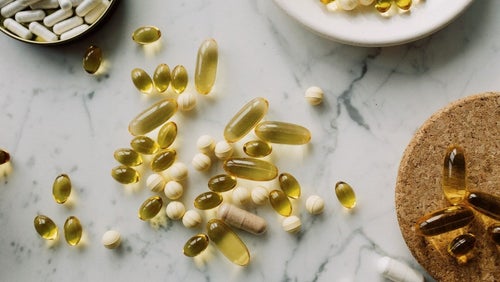
5 Amazing Health Benefits Of Cod Liver Oil
It's one of the longest standing supplements for a reason....
A tablespoon of cod liver oil can provide up to 35mcg (micrograms), which is incredible considering the NHS recommended daily allowance (RDA) is currently just 10mcg.5 Cod liver oil is also packed with omega 3, which are believed to support the health of our brains as well as our hearts.6,7
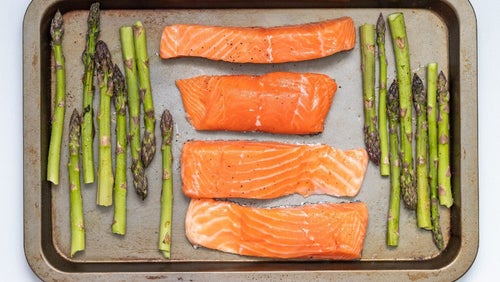
16 Foods High In Omega 3
Who knew black walnuts and navy beans were a thing?...
Salmon and Trout
Both salmon and trout are great sources of vitamin D, netting you between 14-17mcg per 100g serving, and are packed full of high-quality protein. Similar to cod liver oil, you can also expect a good serving of omega 3s with these oily fish.
They are also brimming with vitamin B12, an incredibly important vitamin that supports the formation of DNA, healthy red blood cells, and critical components of our central nervous system.
Mushrooms
Did you know that mushrooms exposed to direct sunlight can provide as much as 10mcg of vitamin D per 50g serving? This is great news for those following a plant-based diet. Mushrooms also contain some plant protein as well as fibre, helping you to feel fuller for longer.
They are also a source of phytochemicals, which are unique compounds found only in plants. Phytochemicals may help support our immune system and protect cells from harm. This is just another reason to include more plants in your diet.

Vegan Fajitas | 15-Minute Ultimate Portobello Fajitas
We've got plant-based power all wrapped up....
Eggs (whole)
These protein powerhouses are also a decent source of vitamin D, providing between 1-1.5mcg per egg. A few here and there will certainly help you reach your required intake more readily.
Side note: does anyone else think it’s weird that the yolks look kind of like the sun and that’s where the vitamin D is stored? Just me? OK. Eggs are also a great source of vitamin B12 as well as monounsaturated fats. This form of dietary fat can support a healthier heart when replacing unhealthy fats in the diet.
Fortified foods and plant-based milks
The amount of vitamin D found in fortified foods and plant-based milks varies, but you can expect most to offer between 2-4mcg per serving. These foods are also typically fortified with many other vitamins and minerals, making them a great way to ensure you’re meeting your daily dietary requirements.
How Much Vitamin D Do You Need?
The NHS recommends that adults and children over the age of one need 10 micrograms of vitamin D per day.5 This is a general guideline, and some people may need more, especially during the darker months or if they have limited sun exposure. It’s important to find a way to consistently meet this daily requirement.
Vitamin D Supplements
It’s not always easy to get your daily fix of vitamin D, as it mainly comes from sun exposure and isn’t present in many foods. Our range of vitamin D supplements offer a convenient option to support your levels.
Why Supplement?
Supplements are a simple, high-quality way to support your intake, especially during winter months. They are a reliable way to get a specific dose of the nutrient without having to constantly track dietary intake or worry about a lack of sun exposure. They are an ideal training partner to help you feel fit enough to keep tackling your workouts.
Vitamin D Gummies
Our chewable gummies are a delicious way to stay topped up on this essential vitamin. Each gummy contains 25mcg of vitamin D3, which supports normal immune function, and they are vegetarian friendly. Not only that, but it also helps to keep your muscles and bones in good condition. They are a convenient and tasty addition to your daily routine.
Vitamin D3 Softgels
A weather-proof way to get all the great health benefits of vitamin D. Each capsule is packed with 25mcg of vitamin D, which supports your immune system and helps to keep you fighting fit. It also helps to keep your muscles and bones in great condition, making it an essential addition to your diet.
Cod Liver Oil
Our Cod Liver Oil Softgels are a rich source of omega-3 fatty acids EPA and DHA, and a good source of vitamin D and vitamin A. These convenient capsules are perfect for a busy lifestyle and support not only your vitamin D levels but also natural defences and heart function.
Curcumin & Vitamin D3 Capsules
Featuring a unique blend of ingredients, with 60mg of NovaSOL® curcumin extract and 11mcg of vitamin D per capsule. This convenient everyday boost supports your immune system and normal muscle function, helping you stay on track with your fitness goals.
Calcium & Vitamin D3 Tablets
A convenient tablet to support your training ambitions. Just 2 of these tablets give you 100% of your recommended daily intake of calcium, which helps with muscle function, and vitamin D, which supports your immune system. Plus, the vitamin D helps to keep your natural defences high, as well as supporting normal bone health.
Manuka Honey Immunity Gummies
Our Manuka Honey Immunity Gummies offer triple-action immune support with a powerful trio of vitamin C, D and zinc. Each serving provides 100% of your NRV of zinc, and 200% of your NRV of vitamin D. This formula contributes to normal immune function and also helps reduce tiredness, making it a convenient way to stay match-fit.
Take Home Message
Vitamin D plays a vital and wide-ranging role in our overall health, particularly in supporting normal immune, muscle and bone function. While sunlight is our primary source, it can be unreliable, especially during the darker months in the UK. Meeting your daily requirements is essential for staying consistent with your training and feeling your best.
Here’s what you need to remember:
Sunlight is key, but it's not always enough, especially between autumn and spring. Food helps, so look to oily fish, eggs, and fortified products to boost your intake. Supplements are a solution. They offer a simple, convenient, and effective way to ensure you're getting enough every single day, no matter the weather.
Don't let your vitamin D levels hold you back. A simple daily supplement is the most reliable way to support your body and stay on top of your game, all year round.
READ THESE NEXT:

8 Benefits Of Fish Oil
It has even been shown to improve mental wellbeing....

Vitamin C Benefits: Everything You Need to Know
Why vitamin C is a daily essential....

17 Foods High In Vitamin A
It supports the immune system, skin health and eyesight. Here's how to get more ...

- Crowe, F. L., Jolly, K., MacArthur, C., Manaseki-Holland, S., Gittoes, N., Hewison, M., Scragg, R., & Nirantharakumar, K. (2019). Trends in the incidence of testing for vitamin D deficiency in primary care in the UK: a retrospective analysis of The Health Improvement Network (THIN), 2005-2015. BMJ open, 9(6).
- Zhang, R., Naughton, D.P. (2010)., Vitamin D in health and disease: Current perspectives. Nutr J 9, 65.
- Wiciński, M., Adamkiewicz, D., Adamkiewicz, M., Śniegocki, M., Podhorecka, M., Szychta, P., & Malinowski, B. (2019). Impact of Vitamin D on Physical Efficiency and Exercise Performance-A Review. Nutrients, 11(11), 2826.
- Desbrow, B., Burd, N. A., Tarnopolsky, M., Moore, D. R., & Elliott-Sale, K. J. (2019). Nutrition for Special Populations: Young, Female, and Masters Athletes. International journal of sport nutrition and exercise metabolism, 29(2), 220–227.
- https://assets.publishing.service.gov.uk/government/uploads/system/uploads/attachment_data/file/618167/government_dietary_recommendations.pdf
- Lange, K., 2020. Omega-3 fatty acids and mental health. Global Health Journal, 4(1), pp.18-30.
- Khan, S., Lone, A., Khan, M., Virani, S., Blumenthal, R., Nasir, K., Miller, M., Michos, E., Ballantyne, C., Boden, W. and Bhatt, D., 2021. Effect of omega-3 fatty acids on cardiovascular outcomes: A systematic review and meta-analysis. EClinicalMedicine, 38, p.100997.
